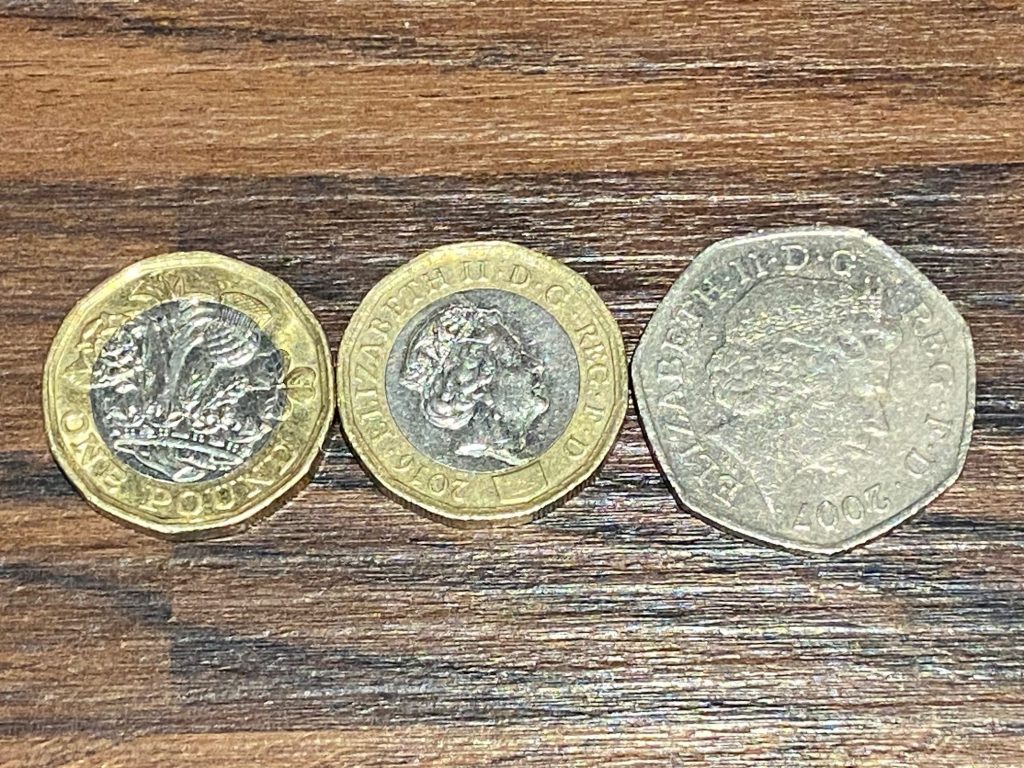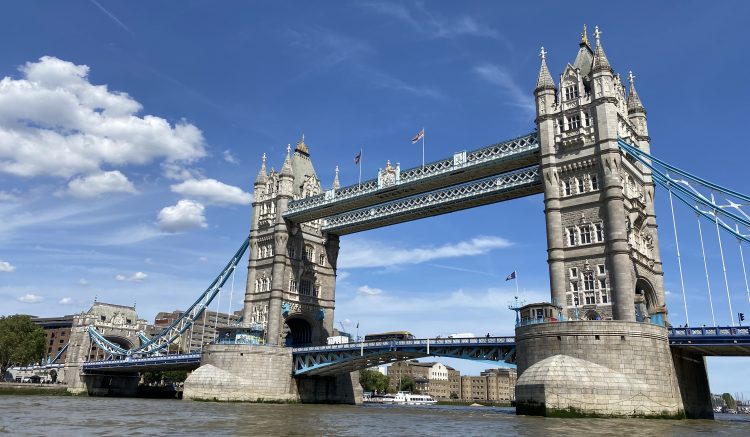Writing a guide for travel to the United Kingdom is harder than I expected. I’ve lived here for most of the past 22 years. However, trying to summarise highlights and recommendations in one post is challenging. Therefore, this is a really general overview, and I will write more detailed posts for the many cities, towns and areas that I have visited throughout the UK. I’ve spent most of the time in London, and can already think of different themes for posts including food, theatre, museums, hidden places, churches, music, transport and running routes.
If you are planning to travel to the United Kingdom from another continent, you will likely land at one of the five “London” airports. However, from closer destinations in Europe there are flights to cities throughout the UK. The UK is comprised of England, Scotland, and Wales plus Northern Ireland. All are countries but not sovereign states. Each also has its own capital and football team. There are many interesting cities to visit, quaint countryside villages and seaside towns. Even though I have lived hear for many years, I still have more to explore. I hope this guide can inspire some travel plans in the UK! It is not comprehensive so I am sorry if I have missed out some great places.
Highlights
- London, the capital with its museums, architecture, food, theatre and mix of people
- National parks and AONB (Areas of outstanding natural beauty) including the Cotswolds, Chilterns, Isle of White, Yorkshire Dales, Snowdonia, New Forest
- Edinburgh, capital of Scotland. A hilly city with a prominent castle, hiking up Arthur’s seat and a generally friendly vibe
- Glasgow with its unique architecture, museums and necropolis on the hill
- Scottish highlands, castles and lochs including Loch Ness
- The isles of Scotland for nature and whisky tasting
- Cornwall, the southwest coastal area that is a stunning setting for many British series. Blue waters and surfing, hiking and the Eden project
- Cambridge and Oxford, both historic and beautiful university towns with incredible architecture, rivers and markets
- Gloucester and Cheltenham
- Wales has some stunning mountains including Snowdonia and the Brecon Beacons. There are also some lovely coastal areas in the south such as Cardiff and Mumbles
- Belfast, the capital of Northern Island, has had some difficult history but it is interesting to visit and see some remnants of dividing walls, memorials and murals. It is also where the Titanic was built
- The Lake District and the Peak District for beautiful nature
- Big cities in the north which have a lot of character including Manchester, Liverpool (also of Beatles fame), Newcastle and Leeds
- Castles along the coasts and borders between countries. Too many to name but many are managed by the National Trust or English Heritage. The ruined ones are beautiful too
- Bristol with its great music scene, alternative culture and the Clifton suspension bridge
- Bath with its grand crescents and buildings, Roman baths and Jane Austen history
- South coast beaches and the Jurassic Coast
- The White Cliffs of Dover and Seven Sisters Cliffs
- Stonehenge and Avebury
- Watch a football match as the fans in the UK are very dedicated and lively
- Isle of Wight in the south
- Stratford-upon-Avon, home of William Shakespeare
Before you go
- US and European citizens can stay in the UK as tourists for up to 6 months
- The UK plug is Type G with 3 large prongs and the electricity is a much higher voltage than the USA (so don’t bring a US hairdryer )
- Public transport is usually very good unless there are strikes, engineering works, heat waves or leaves on the track
- Driving is on the left side of the road, so look both ways before crossing the street
- The capitals of the UK’s countries are London, England; Belfast, Northern Irelands; Edinburgh, Scotland; and Cardiff, Wales
- Bank holiday is a public holiday
- Banks and post offices are usually open shorter hours on Saturday and closed Sunday
- Most shops are open for shorter hours on Sundays, due to trading laws
- Football is the most popular sport and it is the same as Soccer in the USA; British people call US football American football
- If you don’t have an international cell phone/ mobile phone plan, you can buy pay as you go cards for any unlocked phone
- There are many differences in vocabulary and sayings between British English and American English so don’t be surprised at some lost in translation moments
- Accents in the north of England, Scotland and Wales can sometimes be difficult to understand if you are not used to them
- If someone runs into you, you should still say sorry. People just say sorry a lot in general
- Quid is a slang term for the British pound like bucks are for dollars.
- Pound and two-pound coins are heavy and worth quite a bit of money, so don’t forget to spend them!
- Bring a contactless credit card if you have one, as it is useful for public transport
- Britain has some unique holidays and events so check the calendar to see what is on during your visit. Some examples are Hogmanay in Edinburgh (1 January), Burns Night (25 January), Cooper’s hill cheese rolling competition near Gloucester (May), World Bog Snorkelling Competition (August), World Gurning Championship in Egremont, Cumbria, Guy Fawkes Night (5 November)
- On public transport, there are seats for those less able to stand. If you sit there, then you should be ready to give up your seat without being asked. Also to be polite, let people off the train or tube before getting on
Transport
- The UK has many airports, and London alone has five of them. The largest is London Heathrow (LHR) to the west of London. London City is in the southeast of the city. Luton is to the north, Stansted to the east and Gatwick to the south
- UK trains cover most of the country, though they are better at going north and south than across the country. There are also some places in the countryside that are not easily reached by train. You can check routes on National Rail. The website or app called Trainline is sometimes easier to actually buy the tickets
- NationalExpress bus services also cover a lot of the country and are significantly cheaper than the trains
- Cities usually have local buses and/or trams. And London has an extensive underground network. For most of them you can use contactless credit cards to pay
Accommodation
- AirBnB is very popular in the UK and allows you to stay in comfortable, homey places and can save money in the larger cities compared to hotels
- The concept of Bed and Breakfast (B&B) is very British and you will often get a delicious, filling cooked breakfast each morning
- If you are searching for a hotel then a site like Booking.com is always useful to check reviews and location
- For London, tourists may want to stay in the centre, Zone 1. It is quite busy, noisy and expensive. You may want to opt for somewhere along the tube but in Zones 2 or 3 if you are on a budget
Currency
The official currency is the British pound. As of February 2023, one British pound is equal to 1.22 USD. For comparison, when I first moved to the UK in 2001, it was more than 2 dollars to a pound!
I recommend to check the currency conversion just before you leave as this fluctuates

Food
British Food
When people think of British food, they probably think of meat pies, fish and chips, and roast dinners. These are hearty, traditional foods that you can often find in pubs! In general, I love the traditional savoury foods and desserts, but find them very heavy. They are especially suited for the winter months. Traditional desserts include sticky toffee pudding, spotted dick, treacle tart, bread and butter pudding, banoffee pie and Bakewell tart. Interestingly, a lot of these have history (or myths) about their origins from very specific places.
British food has modernised a lot over the years, so now there is a great variety to be found. And in London, you can really find food from any area of the world. There are particular areas which specialise in certain cuisines, and that will be the subject of a future post!
Indian Food
On the other hand, some Indian dishes are also typically British. For example, chicken tikka masala was invented in Glasgow by Ali Ahmed Aslam, or at least he is usually credited with the creation. The Indian food here is particularly tasty with a blend of Indian and British ingredients.
Afternoon Tea
Of course, another typically British culinary tradition is afternoon tea. This usually starts with delicate finger sandwiches including fillings such as cucumber and cream cheese. Next, there are scones with jam and clotted cream. And finally, a selection of petite desserts. All of this is accompanied by bottomless pots of tea. A cream tea is the simpler version with just the tea and scones.
Beverages
In the summertime, there is a cocktail called Pimms and lemonade which features at most garden parties. Pimms is a fortified liquor that tastes like sweet sherry. This is mixed with lemonade (in Britain that is like Sprite or 7Up), strawberries, cucumer, lemon and mint. It is often sipped while enjoying finger foods out in the garden.
Some people may want to try British beers. The ales are often served at room temperature, which can be surprising for those expecting an ice cold beer. They’re also often described as bitter. Ciders are also very popular for those who prefer a fruity, sweet fizzy beverage.
Recently, and with thanks to global warming, the UK has also started to produce a lot of wine. We have been down to visit wineries in Kent and also in the Chilterns. So far, I think the UK white and rose sparkling wines are especially nice. The white and red wines are variable, and usually on the lighter side.
FAQs
Q: Do I need a tour guide?
A: No, not just for general travel. However, you may want to have more information about certain areas and can either join a tour group or find a guide.
Q: Do people speak English?
A: Yes, the United Kingdom (England, Northern Ireland, Scotland and Wales) are English-speaking
Q: Can I travel solo?
A: Yes it is easy to travel alone and using public transport
Q: How easy is it to send postcards?
A: It is easy to find postcards in London and other large cities, and touristic towns. There are Royal mail post offices in most cities and towns, and some villages. See Sending Postcards from Abroad for details on cost and the time it took to reach the USA.
Go to Country Map
